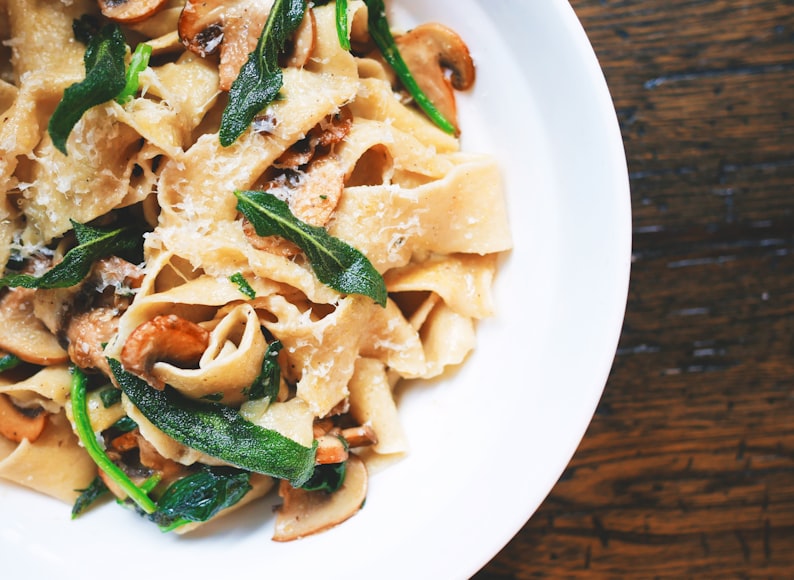I. Introduction

I. Introduction
A. Importance of Dental Health for Dogs
Dental health is paramount for dogs’ overall well-being. Healthy teeth and gums prevent pain, infections, and nutrient deficiencies. Good dental hygiene promotes a longer, healthier life for our furry companions.
B. Common Dental Problems in Dogs
Unfortunately, dental problems are prevalent in dogs. Some common issues include:
- Periodontal disease: Infection and inflammation of the gums and underlying bone.
- Tooth decay: Damage to the enamel and dentin, caused by bacteria and plaque accumulation.
- Gum recession: Loss of gum tissue around the teeth, exposing the tooth root.
- Tartar buildup: Hardened plaque that adheres to teeth, leading to further dental issues.
II. The Role of Dog Food in Dental Health
Diet plays a significant role in maintaining canine dental health. Certain dog foods contain ingredients specifically designed to:
- Reduce plaque buildup: Ingredients such as sodium hexametaphosphate bind to calcium in saliva, preventing it from forming tartar on teeth.
- Clean teeth: Crunchy kibble and dental treats can help remove plaque and tartar through mechanical action.
- Strengthen enamel: Minerals such as calcium and phosphorus support enamel health, protecting teeth from decay.
- Promote saliva production: Saliva neutralizes acids in the mouth, reducing the risk of cavities.
III. Key Ingredients to Look For
When selecting dog food for healthy teeth, look for the following key ingredients:
- Sodium hexametaphosphate: A compound that prevents tartar buildup.
- Crunchy kibble: Kibble with a rough texture helps scrape away plaque.
- Dental chews: Treats designed to mechanically clean teeth.
- Calcium and phosphorus: Minerals that strengthen enamel.
- Enzymes: Enzymes such as proteases and lipases help break down plaque and food particles.
IV. Additional Dental Care Tips
In addition to choosing dental-specific dog food, follow these tips to maintain your dog’s dental health:
- Brush your dog’s teeth regularly: This is the most effective way to remove plaque and prevent buildup. Use a dog-specific toothpaste and brush.
- Provide dental chews: Offer dental chews or toys that encourage chewing to help remove plaque.
- Schedule regular dental checkups: Have your dog’s teeth examined by a veterinarian to detect and treat any underlying dental issues.
- Avoid sugary treats: Limit sugary treats, as these can contribute to tooth decay.
V. Conclusion
Maintaining good dental health for your dog requires a combination of proper diet, regular brushing, and professional care. By choosing dog food specifically designed for healthy teeth and following these additional tips, you can ensure your furry friend enjoys a bright, pain-free smile throughout their lifetime.
II. Types of Dog Food for Healthy Teeth

Maintaining optimal oral health for your furry companion is crucial for their overall well-being. Choosing the right dog food for healthy teeth is an important aspect of this ongoing care. Here are three main types of dog food that can help promote dental health:
A. Dry Kibble
- Benefits: Dry kibble is a popular choice as it mechanically cleans teeth as dogs chew on the hard pellets. The abrasive texture helps to remove plaque and tartar buildup.
- Drawbacks: Dry kibble can be less palatable for some dogs, and it can sometimes contain high levels of carbohydrates that can contribute to dental issues.
B. Wet Food
- Benefits: Wet food is more flavorful and easier to chew, making it a good option for dogs with dental problems or older dogs. Some wet food formulations contain ingredients that specifically target dental health, such as enzymes or zinc.
- Drawbacks: Wet food is typically more expensive than dry kibble and can spoil more quickly. It may also not provide as much mechanical cleaning action as dry kibble.
C. Dental Chews
- Benefits: Dental chews are designed specifically to promote oral health. They are usually made with a hard, abrasive material that helps to scrape away plaque and tartar. Some dental chews also contain enzymes or other ingredients that can help to freshen breath and reduce gum inflammation.
- Drawbacks: Dental chews should be given in moderation, as excessive chewing can lead to digestive problems. They may also be too hard for some dogs with dental issues.
Recommendation:
The best type of dog food for healthy teeth will depend on your dog’s individual needs and preferences. If you have any concerns about your dog’s oral health, it’s always best to consult with your veterinarian for personalized advice. By providing your dog with a diet that supports their dental well-being, you can help them maintain a healthy and happy smile for life.
III. Ingredients to Look for

Maintaining healthy teeth is crucial for a dog’s overall well-being. Choosing the right dog food can significantly contribute to your furry friend’s dental hygiene. Here are three key ingredients to look for:
A. Crunchy Texture
Foods with a crunchy texture encourage dogs to chew thoroughly, which helps break down food particles and remove plaque from their teeth. Kibble that is hard and has an abrasive surface promotes tooth brushing action as dogs chew.
B. Plaque-fighting Ingredients
Certain ingredients have been shown to actively fight plaque and promote dental health. Look for dog food that contains:
- Hexametaphosphate (HMP): A compound that binds to calcium in plaque, preventing its crystallization and hardening.
- Trisodium Citrate (TSC): Another plaque-fighting agent that disrupts the formation of bacterial biofilms on teeth.
- Green Tea Extract: Contains antioxidants that have antibacterial and anti-inflammatory properties.
- Omega-3 Fatty Acids: These healthy fats have been linked to reduced inflammation in the gums.
C. Antioxidants
Antioxidants, such as Vitamin E and Vitamin C, help protect against the damage caused by free radicals, which can contribute to gum disease and tooth decay. Look for dog food that contains high levels of these antioxidants to support your dog’s dental health.
Additional Tips:
- Brush your dog’s teeth regularly using a soft toothbrush and dog toothpaste.
- Offer your dog dental chews or toys that promote chewing and plaque removal.
- Schedule regular dental cleanings and exams with your veterinarian.
By choosing dog food that includes these essential ingredients, you can help maintain your dog’s healthy teeth and gums for years to come.
IV. Choosing the Right Dog Food

Maintaining your dog’s oral health is crucial for their overall well-being. The right dog food can play a vital role in preventing dental issues and promoting healthy teeth. Here are some important considerations when choosing a dog food for healthy teeth:
A. Consider Your Dog’s Age, Size, and Breed
The best dog food for your pet will depend on their specific needs. Consider their:
- Age: Puppies and senior dogs have different nutritional requirements and may need specialized dental support.
- Size: Smaller dogs tend to have smaller mouths and teeth, so they may require food with smaller kibble sizes.
- Breed: Some breeds are more prone to dental problems than others. For example, dogs with narrow jaws or crowded teeth may require a food specifically designed to reduce tartar buildup.
B. Read Ingredient Lists Carefully
When selecting a dog food, pay close attention to the ingredient list. Look for the following key components:
- Dental Ingredients: Ingredients such as sodium tripolyphosphate, calcium carbonate, and cellulose can inhibit tartar buildup and reduce plaque formation.
- Wholesome Proteins: High-quality proteins from sources like chicken, lamb, or fish provide essential nutrients that support healthy teeth.
- Balanced Minerals: Calcium and phosphorus are essential for strong teeth and bones. Ensure that the dog food contains adequate amounts of these minerals.
C. Consult with a Veterinarian
Before making any major changes to your dog’s diet, it’s always advisable to consult with a veterinarian. They can recommend the most suitable dog food for your pet’s individual needs, taking into account any underlying health conditions or allergies.
Additional Tips:
- Choose dog food with kibble sizes that encourage chewing, as it helps remove plaque and tartar from teeth.
- Offer your dog dental chews or toys to promote oral hygiene.
- Schedule regular dental checkups with your veterinarian for professional teeth cleaning and assessments.
By following these guidelines and consulting with a veterinarian, you can choose the right dog food for healthy teeth, ensuring a bright and healthy smile for your beloved companion.
V. Feeding Recommendations

As a pet blogger specializing in [Dog Food for Healthy Teeth], it’s crucial to provide our readers with comprehensive feeding guidelines to maintain their canine companions’ dental well-being. Here are the essential aspects to consider:
A. Frequency and Portion Size
- Frequency: Feed your dog twice daily, at approximately the same time each day. Regular feeding times help prevent plaque buildup and maintain a healthy oral environment.
- Portion Size: Determine the appropriate portion size based on your dog’s weight, age, and activity level. Overfeeding can contribute to weight gain and subsequent dental problems.
B. Combining Different Types of Food
- Dry Food: Dry kibble is beneficial for dental health because it requires chewing, which helps scrape away plaque and tartar.
- Wet Food: Wet food is softer and easier to chew, but it can also contribute to plaque formation. Combining dry and wet food can balance the dental benefits.
- Dental Treats and Chews: Dental treats and chews designed to clean teeth are helpful in removing plaque and freshening breath. However, they should be used in moderation.
C. Monitoring Your Dog’s Dental Health
- Regular Dental Checkups: Schedule regular veterinary dental checkups to assess your dog’s oral health and identify any potential issues early on.
- Home Inspections: Perform regular home inspections of your dog’s teeth and gums. Look for signs of plaque, tartar, gingivitis, or other abnormalities.
- Dental Hygiene: Brush your dog’s teeth as frequently as possible, preferably daily. Use a dog-specific toothpaste and toothbrush.
Additional Tips:
- Avoid feeding your dog human food scraps, as these often contain high levels of sugar and carbohydrates that can damage teeth.
- Provide plenty of chew toys to encourage chewing and plaque removal.
- Keep your dog’s water bowl clean and filled with fresh water at all times.
- Avoid using hard or abrasive materials to brush your dog’s teeth, as these can damage the enamel.
By following these feeding recommendations and monitoring your dog’s dental health, you can help ensure your furry friend maintains a healthy and happy smile for years to come. Remember, prevention is key, and good dental care is an essential part of a healthy and fulfilling life for your canine companion.
VI. Benefits of Healthy Teeth
Maintaining healthy teeth is crucial for your dog’s overall well-being. A clean mouth not only prevents dental problems but also improves their general health and comfort. Here are the key benefits of healthy teeth in dogs:
A. Improved Overall Health
A healthy mouth is a gateway to good overall health. When your dog’s teeth are clean and free from infection, it reduces the risk of bacteria entering the bloodstream and causing systemic diseases. Dental bacteria have been linked to conditions such as heart disease, liver disease, and kidney disease.
B. Reduced Risk of Dental Disease
Healthy teeth are less likely to develop periodontal disease, a common condition that affects dogs of all ages. Periodontal disease is an inflammation of the gums and surrounding tissues caused by plaque and tartar buildup. It can lead to pain, gum recession, tooth loss, and even bone loss around the jaw.
C. Increased Comfort and Well-being
Dogs with healthy teeth experience less discomfort and pain. A clean mouth eliminates bad breath, reduces inflammation, and improves their overall mood and well-being. Healthy teeth also allow your dog to eat, drink, and engage in oral activities without experiencing pain or irritation.
Additional Benefits:
- Improved appetite and digestion
- Reduced chewing difficulties
- Increased lifespan
- Enhanced bond between you and your pet
Maintaining healthy teeth in dogs requires a combination of proper dental care, a balanced diet, and regular veterinary checkups. By investing in your dog’s oral health, you can ensure a healthier, happier, and longer life for your beloved companion.
VII. Additional Tips for Dental Health
In addition to selecting the right dog food for healthy teeth, there are several other essential practices that can help maintain your pet’s oral hygiene:
A. Regular Brushing
- Brush your dog’s teeth at least twice a week, ideally daily.
- Use a dog-specific toothbrush and toothpaste (avoid human toothpaste).
- Lift your dog’s lip and gently brush the outer and inner surfaces of the teeth.
- Avoid over-brushing, as it can cause irritation.
B. Dental Checkups
- Schedule regular dental checkups with your veterinarian, typically every 6-12 months.
- During these checkups, your vet will examine your dog’s teeth and gums for signs of disease or issues.
- They may recommend professional dental cleaning if necessary.
C. Avoiding Sugary Treats
- Limit or eliminate sugary treats from your dog’s diet.
- Sugar can promote plaque buildup and tooth decay.
- Instead, offer healthy alternatives like carrots, apples, or frozen berries.
Additional Considerations:
- Consider using dental water additives that contain enzymes to help reduce plaque and tartar buildup.
- Provide your dog with chew toys designed to clean teeth, such as rawhide or dental chews.
- Avoid giving your dog bones or other hard objects that can damage teeth.
By following these additional tips and choosing a dog food specifically formulated for healthy teeth, you can help your furry friend maintain optimal dental health and enjoy a lifetime of happy smiles.




















